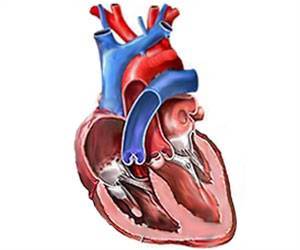
‘MIRACLE2 is the first practical score which can provide objective risk assessment to help clinicians take critical decisions about invasive treatments, use of novel therapies, and standardizing care for patients without of hospital cardiac arrest (OOHCA).’
Read More..Tweet it Now
Out of hospital cardiac arrest (OOHCA) is a major public health challenge and can lead to considerable morbidity and mortality. Patients have an extremely high risk of long-term brain damage after cardiac arrest, but this can be difficult to predict early on after admission.Read More..
The study examined data on 400 patients who have had an out of hospital cardiac arrest and been treated at King’s College Hospital and then identified characteristics of patients that developed brain injury. The team then performed prediction modelling to create a score that could be readily applied by clinicians on arrival to a heart attack centre.
The MIRACLE2 predicted brain injury with high accuracy and when validating the performance of the score in nearly 500 patients from two other heart attack centres from Europe, the score performed equally well.
The risk score will now be validated in a larger number of patients and potentially across different healthcare settings, for example by ambulance staff in the community. Once the performance of the score has been checked in these settings, it could be incorporated into future clinical trials and potentially into national guidance.
Nilesh Pareek from King’s College Hospital said, "MIRACLE2 is the first practical score which can provide objective risk stratification to support clinicians in making critical decisions for patients with OOHCA. This could be a major step forward in understanding which OOHCA patients to select for invasive treatments, to guide the application of novel therapies and for standardising care across all healthcare settings."
Advertisement
Source-Eurekalert














